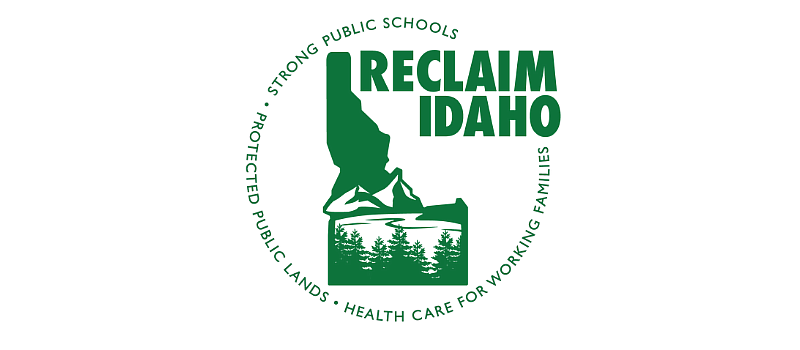Reclaim Idaho ends signature push
The website for Reclaim Idaho reads like a sign in a post-apocalyptic shop window, frozen in time after a worst-case scenario left streets and storefronts empty.
“Sign the petition to increase funding for K-12 education,” it reads in all-caps. “It only takes a few minutes.”
The hopeful message is then followed by another message, one of glum reality that foreshadows a telling doom.
“Due to COVID-19,” it continues, “we are collecting signatures electronically to qualify the ‘Invest In Idaho’ K-12 initiative for the ballot.”
A U.S. Supreme Court decision last week to block the grassroots group from collecting electronic signatures left Reclaim Idaho’s abandoned website as the last sign of hope in its quest to improve K-12 education funding.
“We are not actively collecting signatures,” Rebecca Cleveland-Schroeder told The Press Thursday when asked about the site’s status. “We are not processing signatures. We do not intend to take any further legal action and we do not anticipate reviving the signature drive in the little time we might potentially have remaining.”
Schroeder, executive director for the organization that successfully championed Medicaid expansion in Idaho from its 2017 and 2018 campaign, said she was obviously dejected after the Supreme Court’s decision fell in Gov. Brad Little’s favor, essentially blocking the online path to collect the necessary 55,000 signatures to get a tax on some corporations and individuals making $250,000 or more — or couples making $500,000 or more — to raise $170 million for K-12 education.
That push was suspended in March after Little’s shut-down order and the fear of the coronavirus effectively ended any face-to-face signature drive. Originally following an April 30 deadline to collect the signatures in a schedule that didn’t anticipate a global pandemic, Reclaim Idaho was given an extension until Aug. 6. That day — Thursday — came and passed. After collecting about 30,000 votes before the pandemic struck, the Supreme Court’s ruling that fell in Reclaim Idaho’s favor invalidated the electronic signatures the group collected.
“We are sincerely disappointed that our ‘Education Governor’ fought us all the way to the Supreme Court to prevent Idahoans from even voting on critical education funding,” Schroeder said. “The money that would have been generated by the initiative was earmarked for the most urgent needs in Idaho K-12 education.”
In a statement after the Supreme Court ruling, Little said his dispute with Reclaim Idaho was over process and not the issue of school funding.
“I am pleased that the Supreme Court upheld Idaho’s sovereignty over its election and initiative processes,” he said. “It is important that initiatives follow the laws set by the Idaho Legislature, so we can ensure those initiatives that get on the ballot are legitimate and have significant support throughout Idaho.”
Schroeder said a new timeline and new perspective will give Reclaim Idaho an opportunity to reset its strategy, and that a new election year awaits.


